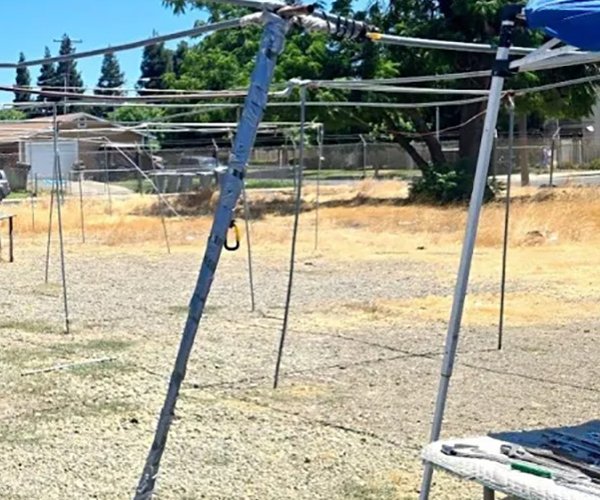One of the main goals of the bipartisan San Joaquin Valley Caucus was achieved Tuesday when Governor Jerry Brown announced that he signed SB269, giving businesses more time for Americans with Disabilities Act fixes.
“I applaud Governor Brown for taking a stand for California’s small businesses by signing this legislation that will protect them from frivolous lawsuits, while ensuring that those who have legitimate ADA claims are not denied due process," said Assemblymember Kristin Olsen, R-Riverbank, who co-authored SB 269 with Senators Richard Roth (D-Riverside) and Andy Vidak (R-Hanford).
ADA legislation has been abused by individuals across the state filing frivolous lawsuits in an effort to make money off of predominantly small business owners, according to Olsen.
Rather than face costly litigation, SB 269 gives small businesses with less than 50 employees the time they need to address access violations. Those who have hired a Certified Access Specialist would have 120 days to make specified minor repairs to their establishments. Also, businesses that have been made aware of lawsuits filed against them have 15 days to address specified violations. The legislation also requires state agencies and local government building departments to send regular updates of changing ADA laws.
“Small businesses should be spending time and resources providing goods and services to their communities and opportunity for their employees, not fighting predatory lawsuits," said Olsen.
After a rash of ADA lawsuits stung San Joaquin business owners with hefty fines and even caused some businesses to close their doors in 2015, local organizations and legislators reached out to the business community to provide education.
The Stanislaus Business Alliance created an ADA Basics for Business, which outlines the history of cases that have struck the state prior to spreading to the Central Valley, as well as examples of various suits and claims that have targeted mainly small to medium sized businesses.
According to the Alliance’s primer, the best defense is a good offense and businesses can prevent the chance of being served by taking steps to become ADA compliant. According to the California Commission on Disability Access, between the months of January and March 2015, the top 10 demand letters and claims being issued to businesses included noncompliant parking lot issues such as a lack of loading zones or van access; ramps that are not compliant; access issues to the public facility or bathrooms; as well as the height of surfaces in the building that are not compliant.
ADA lawsuits have also been an issue at the national level. Congressman Jeff Denham (R-Turlock) has been advocating for ADA lawsuit reform for a number of years.
“In the last year, the Central Valley has seen a sharp rise in the number of predatory, drive-by lawsuits accusing local small businesses of violating portions of the Americans with Disabilities Act,” said Denham in 2015. “Sadly, many of these cases are blatant attempts to extort the owners and operators rather than truly ensure compliance. They often target minority and immigrant owned businesses ill-equipped to fight off lawsuits."
Denham and Representative Ted Poe (R-Texas) cosponsored the ADA Education and Reform Act of 2015. This bill requires the Disability Rights Section of the Department of Justice to develop a program to educate state and local governments and property owners on strategies for promoting access to public accommodations for persons with a disability.
The bill prohibits persons from, and subjects violators to a criminal fine for, sending demand letters or other pre-suit notifications alleging a violation of ADA public accommodation requirements if the notification does not specify the circumstances under which an individual was actually denied access. The notification must specify: (1) the address of property, (2) the specific ADA sections alleged to have been violated, (3) whether a request for assistance in removing an architectural barrier was made, and (4) whether the barrier was permanent or temporary.
The bill also prohibits commencement of civil action based on the failure to remove an architectural barrier to access into an existing public accommodation unless: (1) the aggrieved person has provided to the owners or operators a written notice specific enough to identify the barrier, and (2) the owners or operators fail to provide the person with a written description outlining improvements that will be made to improve the barrier or they fail to remove the barrier or make substantial progress after providing such a description.
The Act was referred to the Subcommittee on the Constitution and Civil Justice.








